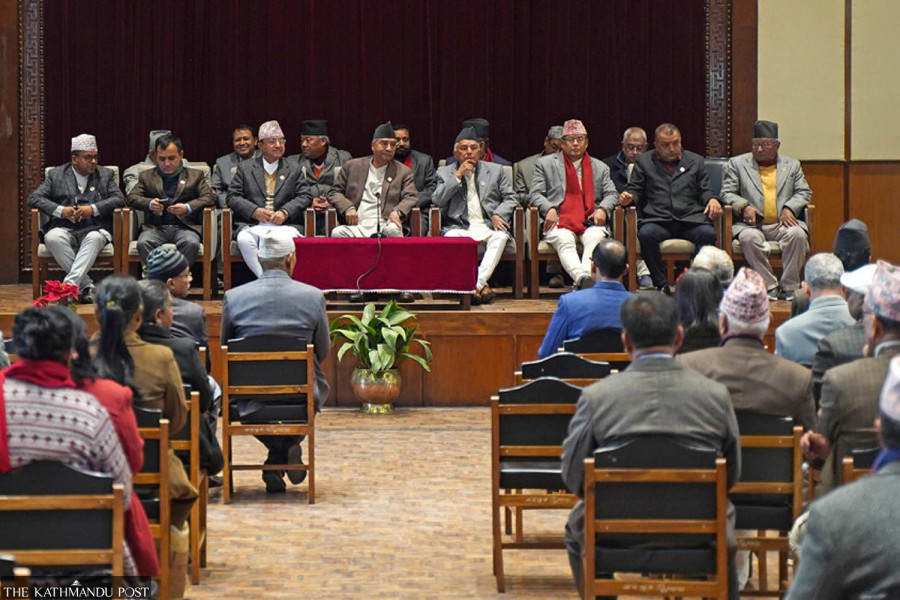Editorial
What is he thinking?
In his lust for power, Sher Bahadur Deuba seems determined to take down Nepali Congress with him.
Sher Bahadur Deuba has earned one more dubious distinction in his over five-decade-long chequered political career. The head of Nepali Congress, the self-proclaimed torchbearers of Nepal’s democracy, has dealt another mortal blow to the parliamentary system. The federal Parliament on Tuesday witnessed a rare sight—the coming together of political parties from left, right and centre to support Pushpa Kamal Dahal: A whopping 268 of the 275 House members voted in favour in the confidence motion for the prime minister. Among those who did so were not only leaders from the ruling coalition but also from the Congress, the largest parliamentary party. Dahal's desire to add strength to his fragile coalition was understandable. Most of his partner leaders are either pastmasters in power politics, like KP Sharma Oli, or untested populists like Rabi Lamichhane, Rajendra Lingden and CK Raut. There's no telling when they will ditch the coalition on one or the other pretext.
Dahal’s latest victory, though, came at a huge cost to Nepal’s democratic culture. The national Parliament is now virtually opposition-less, marking a serious decline in its legitimacy as an institution that brings a multiplicity of voices under the same roof to debate on what is good for the country and the people. And, again, Deuba will have to shoulder the bulk of the blame for this. He forced the Congress parliamentary party to vote for Dahal, even though the latter enjoyed a comfortable majority even without NC’s support. Deuba did so in order to drive a wedge between Dahal and Oli, and perhaps to soon worm his way back into the government. This is a miscalculation.
It was clear that only Congress could play the role of a strong opposition and thereby maintain the all-important check and balance on the Dahal government. Yet Deuba would have none of it. For him, at the fag-end of his political career, any time out of government is wasted time. He has once again proven that his lust for power knows no bounds and he will not desist from smashing democratic values if doing so helps him get back into the prime minister’s seat.
The Congress’s failure to stay in the opposition is a clear case of its moral degradation. With its sizable strength in Parliament, it was the most suitable opposition party. Moreover, its legitimacy has over the years been built as a party that believes in the sanctity of parliamentary democracy. What is also disappointing is the failure of the party’s younger faces—like its two general secretaries, Gagan Thapa and Bishwa Prakash Sharma—to rally the Congress against Deuba’s undemocratic idea. It suggests their clout in the party is exaggerated and that they are not ready to take even calculated political risks to safeguard the democratic process.
Again, given its historic contribution to the cause of democracy, there could have been no better candidate to play the role of a constructive opposition than Congress. Few buy the argument of the Deuba faction that the Congress can still play that role; that is not how the parliamentary system works. The veteran politician understands the meaning of giving a vote of confidence to a leader of a rival party all too well. Deuba, we are afraid, is building a horrendous political legacy for himself.




 21.13°C Kathmandu
21.13°C Kathmandu














